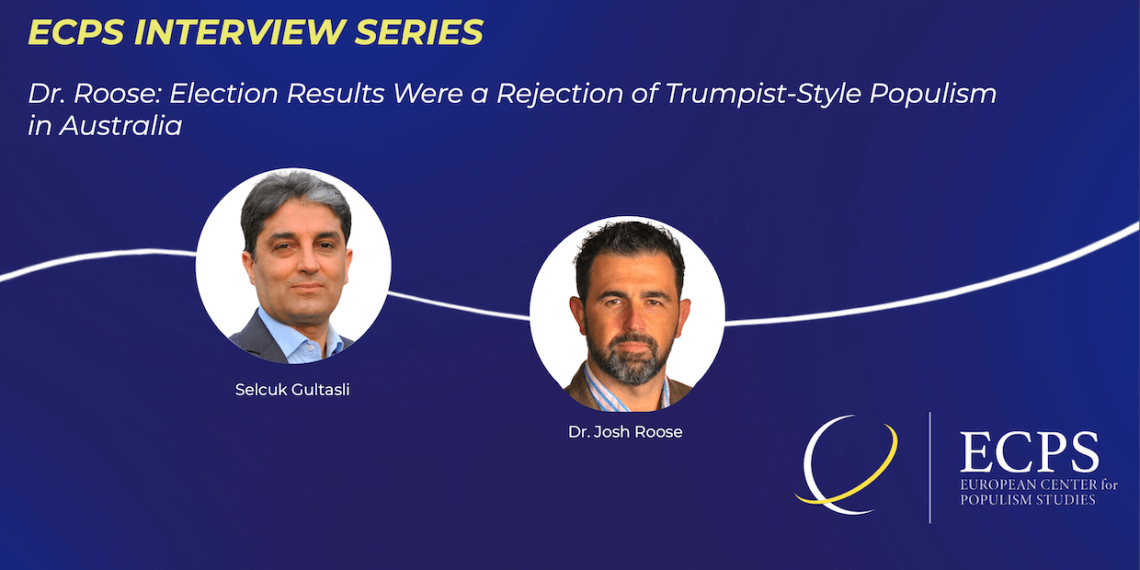In a compelling interview with ECPS, political sociologist Dr. Josh Roose unpacks the 2025 Australian federal election, arguing it marked “a resounding rejection of Trumpist-style populism.” Dr. Roose explores how Liberal leader Peter Dutton’s strongman image backfired, while Labor’s inclusive yet grounded masculinity resonated with urban voters—especially women. He warns, however, of far-right undercurrents and rising generational and economic divides. Reflecting on political masculinities, Islamophobia, and online extremism, Dr. Roose calls for educational and legislative reforms to bolster democratic resilience. A timely deep dive into Australia’s populist landscape—and a must-read for scholars and studenst of global politics.
Interview by Selcuk Gultasli
In a sweeping analysis of Australia’s 2025 federal election results, Dr. Josh Roose—a political sociologist and Associate Professor at the Alfred Deakin Institute for Citizenship and Globalisation—offers a compelling assessment of what he calls “a rejection of Trumpist-style populism in Australia.” Speaking to the European Center for Populism Studies (ECPS), Dr. Roose contextualizes the electoral defeat of Liberal Party leader Peter Dutton within a broader international trend, noting, “What we saw in Canada—where Trump backed the right and attacked Canada, and people mobilized against that and favoured the political left—played out in a very similar vein here.”
Throughout the interview, Dr. Roose explores the dynamics of Australia’s right-wing populism, which has been notably influenced by US political discourse. He underscores how attempts to “personalize Trump through Dutton” and flirt with alt-right masculinity narratives—such as “strong men create good times, weak men create tough times”—largely backfired, particularly among urban professionals and women voters. In this context, he points to Anthony Albanese’s reelection as emblematic of a political style that is both masculine and inclusive: “He doesn’t walk away from traditional working-class masculinity… but he does so in a way that is far more popular and acceptable to women.”
While the Labor Party’s landslide victory marks a historic realignment, Dr. Roose also cautions against complacency. He observes that far-right parties, including Pauline Hanson’s One Nation and the pro-Trump “Trumpet of Patriots,” collectively garnered 10–12% of the vote in some electorates—indicating persistent, if marginalized, populist undercurrents.
Dr. Roose also situates these electoral shifts in the context of deeper transformations in political legitimacy and authority. “The traditional authoritarian mode of politics with a strongman leader… is being resoundingly rejected,” he argues, especially by younger and more diverse electorates. However, he notes that Australia’s deeply masculinist political culture is only gradually giving way to more inclusive norms, catalyzed in part by pandemic-era changes to work and caregiving.
Drawing on his expertise in counter-extremism, Dr. Roose concludes with a call for civic and institutional interventions, from regulating online hate speech to embedding models of “healthy masculinity” in educational curricula. “We need a masculinity that is strong, but also nurturing… capable of moving beyond the ego,” he asserts.
Dr. Roose’s analysis offers both an in-depth case study of Australia’s evolving political terrain and a timely contribution to the global debate on the future of populism, masculinity, and democratic resilience in the post-Trump era.


